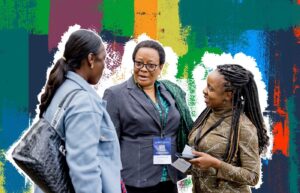
Open Gov Challenge: Honduras
Learn more about Honduras' Open Gov Challenge commitment on anti-corruption.
Corruption is the use of public office for private gain. It includes crimes such as extortion, bribery, racketeering, or embezzlement. It also includes unethical acts and patronage such as revolving doors for government employees and capture of the regulatory process by the powerful and connected. OGP members fight corruption by undertaking reforms in transparency, public oversight, and public accountability.
Explore our list of Actions to Tackle Corruption and our research on Supporting Financial Services to Strengthen Financial Integrity »
Explore recommendations, partners, commitments, and recent posts in specific policy areas:
Corrupt practices impact billions of people worldwide, as tax dollars meant for vital public goods and services disappear, public policies are bent to favor the well-connected, inequality is worsened, and public safety is a privilege of the wealthy. Corruption reduces investment by citizens and by companies. Evidence shows that transparent governments improve business efficiency and spur economic and investment opportunities.
The last several years have shown how important controlling corruption is. Throughout the pandemic, corruption disrupted the delivery of life-saving medical supplies. As countries attempted to make their way out of the COVID-19 pandemic, corruption risks have slowed down the delivery of essential vaccine procurement and have resulted in misappropriation of stimulus and safety net packages. Open and accountable spending and contracting are fundamental areas of anti-corruption reform and Open Response, Recovery, Renewal efforts.
OGP governments are leading the fight against corruption inside and outside of their OGP action plans, including by advancing policy innovations related to issues such as beneficial ownership and open contracting. OGP action plans are an important vehicle to help implement national anti-corruption strategies and legislation. Members have used their action plans to translate announcements made at global fora – including the 2016 London Anti-Corruption Summit, G20 and G7 summits, and the 2030 SDGs – into concrete action in close coordination with national civil society organizations, international expert organizations, business, media, and other key stakeholders. Members are also currently exploring ways to do so with the Summit for Democracy.
In 2021, the OGP co-chairs, the Republic of Korea and Maria Baron, issued this “Call-to-Action” for governments to address corruption. This menu of suggested actions highlights ideas for OGP members to advance through their upcoming OGP action plans. The menu features areas including money in politics, open contracting and transparency of public procurement, beneficial ownership, opening up extractives, whistleblower protection, asset recovery, and foundational cross-cutting areas such as right to information, fiscal openness, and gender and inclusion.

Learn more about Honduras' Open Gov Challenge commitment on anti-corruption.

To mark the International Day for People with Disabilities, Agila Barzdienė and Rugilė Trumpytė discuss how socially responsible procurement is advancing inclusion and accessibility in Lithuania.

Discover initiatives submitted to the Open Gov Challenge by OGP members and beyond, through OGP action plans or as standalone commitments.

Learn more about the Brazil's Open Gov Challenge commitment on open contracting.
Click here for more information about the Open Government Partnership's terms of use.
Terms & Conditions Close